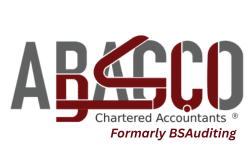Why Should Businesses Prefer Remote Audit?
With the advent of technology, things that are possible today could not have been imagined two decades ago. Just like most of the other jobs, conducting remote audits is gaining popularity rapidly among organizations. Large business corporations already make use of high-tech strategies that enable the audit teams to send and receive relevant data, manage interviews and compare with organizations around the globe without having to commute to and from the audit site. The last version of ISO 19011:2018 actually includes the latest specifications for conducting remote audits and make the transition considerably simpler.
Remote auditing is the future and here we will be discussing everything you need to know about the benefits associated with it.
Here, we have analyzed all the benefits linked with e-auditing and why Chartered Accountants in UAE and overall the world prefer remote auditing.
What Is Remote Audit?
Advantages Of Remote Auditing
1. Saves time and money
2. Travelling to difficult locations
3. Requirement of logistics
4. The efficiency of the audit team
- Accounting & Finance (45)
- Anti-money Laundering (AML/CFT) (4)
- Audit & Assurance (10)
- Blogs (8)
- Business & Finance (9)
- Business Consulting & Advisory (5)
- CFO Services (1)
- Corporate Tax (3)
- Dubai Free Zones (4)
- ERP Services (1)
- Latest News (1)
- News & Update (6)
- Odoo (1)
- Other (13)
- Risk & Compliance (2)
- Taxation & VAT (10)
- Uncategorized (5)
Recent Posts
- What are the VAT Registration Requirements in the UAE?
- What’s VAT Registration in UAE? Everything You Need to Know
- Top 7 Reasons to Outsource Your Accounting Services in 2025
- The Ultimate Guide to Business Valuation Calculation in 2025
- What Is Business Valuation and Why Does It Matter for Your Company?


